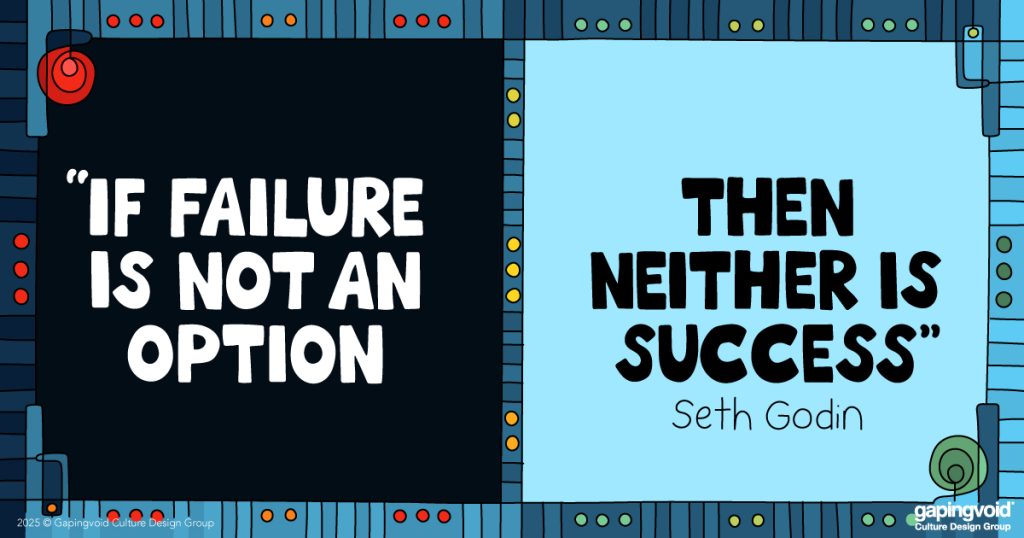 The Gapingvoid Email - free insights & inspiration three times a week!
The Gapingvoid Email - free insights & inspiration three times a week! ![]()

In every major religion, forgiveness matters.
Take, for example, the Lord’s Prayer (found in the Christian Gospels of both Matthew and Luke).
“Forgive us our trespasses, as we forgive those who trespass against us,” reads the traditional English rendering of the fourth petition.
Appearing alongside…
 The Gapingvoid Email - free insights & inspiration three times a week!
The Gapingvoid Email - free insights & inspiration three times a week! ![]()

In every major religion, forgiveness matters.
Take, for example, the Lord’s Prayer (found in the Christian Gospels of both Matthew and Luke).
“Forgive us our trespasses, as we forgive those who trespass against us,” reads the traditional English rendering of the fourth petition.
Appearing alongside daily bread, protection from temptation, and deliverance from evil, forgiveness gets 25% of the ask.
That’s not by accident. Perhaps it’s because it seems so exceedingly hard to achieve for us mere mortals. If it wasn’t, it likely wouldn’t have been emphasized.
Now take this idea and move it upstream.
What if “forgiveness” wasn’t just necessary for us personally, but also foundational to our entire civilization?
Here us out.
Our current civilization, with a few bumps along the way, is basically the story of a primate species (i.e. us) getting increasingly healthier, richer, longer-living, more comfortable and generally happier over the last several centuries.
And how did we do that? Institutions, art, religion, education and philosophy, sure, but a lot of it was because of nice things like indoor plumbing, electricity, engineering, manufacturing, modern agriculture, railways, aircraft, cars, mass communication, modern medicine, the scientific method, and so on…
In other words, innovation. It’s what powers the modern world.
And innovation is only possible if people leading the charge have the capacity of forgiveness, i.e. the forgiveness of mistakes.
Because nobody innovates well if they’re terrified of getting it wrong. And people always get it wrong.
During the Battle of Stalingrad, when things started going badly for the German army, Hitler banned Field Marshal, Friedrich Paulus, from retreating, enforcing the “Not One Step Back” directive. To do so would mean Hitler would have to admit that he had gotten it wrong, that mistakes were made.
Granted, retreat wasn’t considered a flex by Hitler, but that directive ended up costing the German army 300,000 men: soldiers that would’ve come in very handy two years later when the Russians were busy invading Berlin.
This is neither a history nor a theology lesson.
It’s simpler: what makes organizations thrive usually isn’t found in the latest business trend. It’s in foundational ideas that have been doing the work for thousands of years.
Forgiveness is one of them.